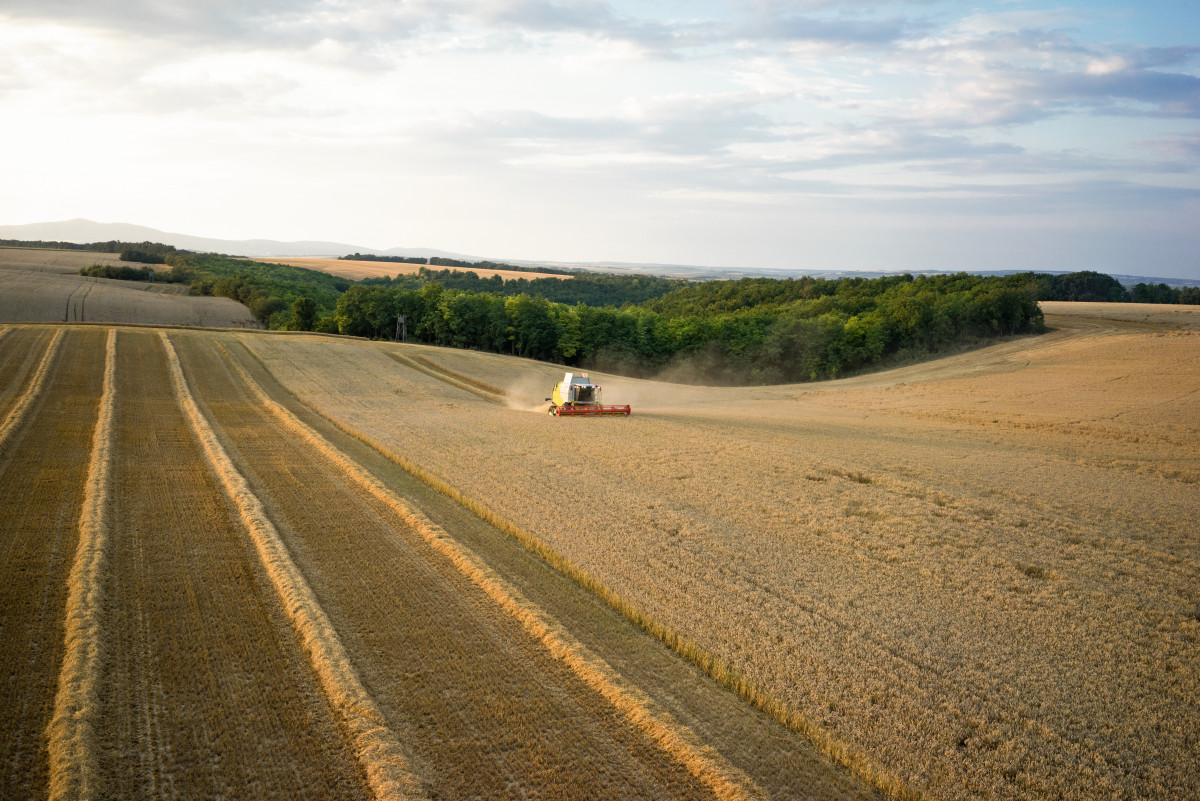Germany must adapt as local temperature increase already at 1.5 degrees – govt
The effects of climate change – such as heat waves, droughts, forest fires and crop failures – are becoming increasingly apparent in Germany, shows the government’s 2019 adaptation monitoring report.
The average air temperature in the country rose by 1.5 degrees Celsius from 1881 until 2018, and 0.3°C in the last five years alone. Those years were characterised by long dry periods and extreme events such as storms and heavy rainfall, said the report.
“All of this shows that climate action is not only about glaciers and polar bears, but also our livelihood here in Germany,” said environment minister Svenja Schulze at a press conference in Berlin. Climate change was not remote. "It is here."
The 2018 drought and heat wave across central Europe led many to consider climate action as a political priority, but the country is still struggling to meet its own emission reduction objectives. The federal government presented a comprehensive climate package in September, which was heavily criticised by researchers, economists and NGOs as falling short of what is needed to reach climate targets.
The United Nations’ Emissions Gap Report 2019, published at the same time as the government report, shows that even if countries reached their current targets, it would be insufficient to keep global warming below 2°C, let alone 1.5°C, as decided in the Paris Climate Agreement.
For Schulze, mitigating global warming is the “principal and preventative answer” to the challenge. The minister said she will fight for a more ambitious greenhouse gas reduction target of the European Union.
However, the she said countries also needed to adapt to the changes, including Germany.
“Climate change has Germany in its grip”
The government report describes the observed impacts of climate change and the adaptation taking place in Germany. It focusses on 2014-2017, but also includes some assessment of the developments in 2018/19.
Tobias Fuchs, head of climate at Germany's National Meteorological Service (DWD), said that “climate change has Germany in its grip”. Data suggested that the current decade will become the warmest since records began both in Germany and globally, he said
The days with temperatures of 30°C and more have significantly increased, from three per year in the 1950s to around ten on average today, said the report. In 2018, this rose to a record 20 days. The number of days with heavy rainfalls rose by 7 percent over the same period.
The effects of climate change in Germany include longer periods with low groundwater levels, damage caused by heavy rainfall and flash floods, and a sea-level rise that increasingly endangers coastal regions due to more intense storm surges. Rising temperatures also influence human health. The report says that in 2015 about 6,000 people more died than would have been expected without a heat wave.
“One can say that this is basically the biggest natural disaster we have had in Germany in the last 50 years,” said Maria Krautzberger, president of the Federal Environment Agency (UBA). “It’s not the tempest, not the thunderstorms, but indeed this phenomenon.”
Krautzberger also pointed to the effects of climate change on the economy, as it affects Germany’s road, rail and waterway infrastructure. “Heavy rainfall flood roads with water, low water levels on the Rhine River in 2018 caused import and export via the North Sea ports to stall considerably. Gasoline became scarce at filling stations in southern Germany, inland waterways transported 10 percent less last year than in the previous year, and other transport options had to be found for the 25 million tonnes of goods.”
In addition, agriculture and forestry are beginning to adapt to climate change, said Krautzberger. Farmers, for example, planted corn earlier in the year, as vegetation seasons shifted, or used entirely different crops. Livestock farming is also affected by the changes. “We anticipate losses in milk, eggs and meat production as a result of heat waves, and reduced feed availability due to drought,” said Krautzberger.
German farmers, meanwhile, are already up in arms against environmental requirements recently introduced by the government. As the report was presented to the press, thousands of farmers from across Germany gathered at nearby Brandenburg Gate to take part in a mass protest against the government's agricultural reform package that foresees a reduction in the use of fertilizers, pesticides and insecticides to protect the environment.
Environment minister Schulze said that current forms of agriculture created problems for environment and climate, but was also affected by climate change. “Farmers must be part of the solution,” said Schulze.
Must make society climate-proof – Schulze
Germany is the home of the Energiewende, a dual shift of the economy’s energy supply from fossil fuels and nuclear to renewable sources. Schulze said the country is only at the beginning of a restructuring process to make society climate-proof and climate-friendly in the long term.
Adaptation was a matter of social fairness, because climate change would hit the most vulnerable members of society hardest, also in Germany, she said. However, it was also “a matter of economic prudence” to adapt to the consequences of climate change at an early stage. “Wherever new bridges and residential areas, cycle paths and railways, or new houses and company premises are planned and built, future climate development must of course be consistently taken into account.”
As an example of what making Germany climate-proof could mean, the state of Bremen’s senator for climate action, environment and city planning – Maike Schaefer (Green Party) – laid out the state’s adaptation strategy from 2018. It includes measures such as coastal protection (e.g. modernising dykes), building a water canal system to keep wetlands from drying, building rainwater retention reservoirs, including fresh air corridors in city planning, and setting up a website where residents can see whether their property is threatened by flooding.
“The bottom line is: yes, we need climate action measures, but at the same time we need climate adaptation strategies to avoid high costs that would come from the effects of global warming,” said Schaefer.



